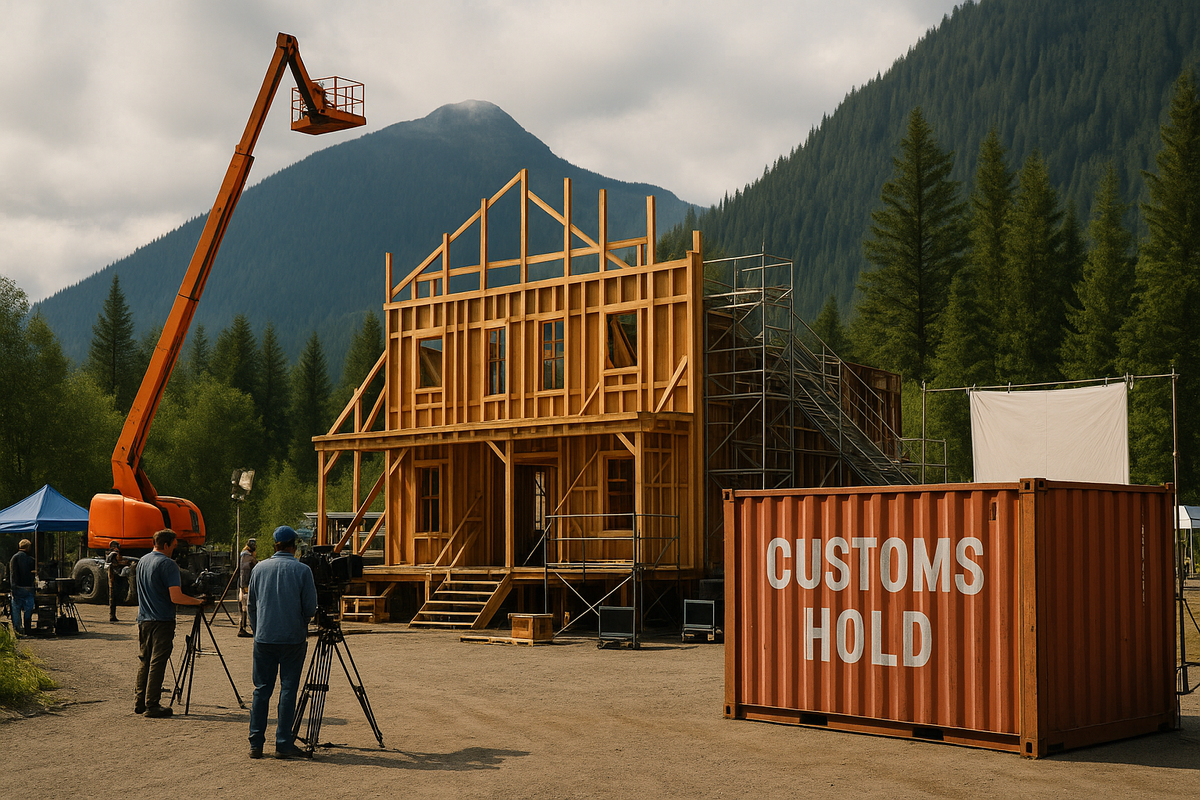
British Columbia’s film industry has long been celebrated as "Hollywood North," known for its lush landscapes, skilled crews, and attractive tax incentives. But in recent years, a quieter, more insidious threat has emerged: international tariffs. As global trade tensions rise, the ripple effects are reaching into the heart of BC’s $4 billion-a-year production economy, creating new costs, delays, and strategic shifts.
While not as headline-grabbing as labor strikes or tax incentive battles, tariffs are becoming a growing concern for producers, suppliers, and post-production houses operating in BC.
Tariffs on Equipment and Materials: A Growing Challenge
One of the most direct impacts is the increased cost of specialized film equipment. Much of the high-end technology used in major productions — including cameras, LED volume walls, lighting rigs, and grip trucks — is manufactured outside Canada, particularly in the United States, Europe, and Asia.
With tariffs imposed on certain categories of imported goods, rental houses and production companies in BC are facing steeper costs. For example, when the U.S. imposed tariffs on steel and aluminum, Canadian grip and lighting companies saw immediate price increases in boom arms, truss systems, and scaffold-based support structures — all essentials for major film shoots.
These additional costs are typically passed down to productions, squeezing budgets that are already under pressure from global competition and rising labor expenses.
Set Construction and the Lumber Tariff Paradox
Perhaps the most ironic blow comes from tariffs on lumber. Despite BC being one of the largest lumber producers in North America, the ongoing U.S.-Canada softwood lumber dispute has led to significant export tariffs. In turn, this has distorted the local market.
Set designers and construction coordinators report that locally sourced lumber prices have risen sharply, in part because the best-grade lumber is exported — and then becomes more expensive to re-import or replace. Building elaborate film sets, a hallmark of Vancouver’s big-budget appeal, now costs more than ever.
Some productions are scaling back on practical set builds, relying more heavily on green screen work or LED walls to control costs. Others are exploring shooting in jurisdictions with cheaper construction materials, threatening BC’s grip on large-scale, visually ambitious productions.
Cross-Border Paperwork and Delays
Beyond direct costs, tariffs are creating logistical headaches. Productions that source props, costumes, and equipment from the U.S. — which remains a critical supply chain hub — now face longer border processing times and more complex customs paperwork.
A recent mid-budget TV series shot in Vancouver reported a three-week delay on the arrival of key prop shipments from Los Angeles, partially due to new customs scrutiny tied to tariff regulations. Such delays can be catastrophic for productions working under tight shooting schedules and rental timelines, adding unexpected costs and stress to already pressured teams.
Strategic Shifts in Response
To mitigate these pressures, some BC-based production companies are adapting their strategies.
- Local Sourcing: More companies are investing in local fabrication of props, costumes, and even camera rigs to reduce exposure to tariffs.
- International Partnerships: Co-productions with European companies, where mutual tariff exemptions can sometimes be negotiated, are increasing.
- Hybrid Shoots: Some productions now split their schedules — shooting exteriors in BC to capture its landscapes but completing interiors in tariff-friendlier locations.
The BC Film Commission and industry groups are lobbying both provincial and federal governments to push for better trade agreements that consider the economic value of the film sector, especially as negotiations around NAFTA successors and Pacific trade agreements continue.
A Global Industry Needs Global Solutions
British Columbia’s film industry has weathered many storms — from tax incentive wars to pandemic shutdowns. But the creeping pressure of international tariffs represents a newer, more complex challenge that can't be solved with local policy alone.
As filmmaking becomes ever more global, BC’s ability to remain competitive will depend on its adaptability — and its capacity to negotiate the new realities of international trade alongside its creative ambitions.
The silver lining? The global appetite for film and television content has never been greater. If BC can navigate the maze of tariffs and trade friction, it stands poised to continue its reign as one of the world's premier production hubs — but it will require agility, collaboration, and strategic foresight like never before.
Chris Sturges, Business Development Director for
Suspiciously Convenient Productions Inc
Contact: chris@suspiciouslyconvenient.com
Tags: #Hollywood North #BC Film Industry #Film Production Challenges
#Tariffs And Cinema #Global Trade Impact #Filming In BC

